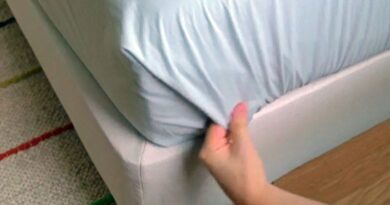Get Over Your Fear of Insects In Your Home!
What if I told you that you don’t need to be scared of insects that live in your home? If you’re someone who’s afraid of insects like spiders, roaches, and the like, I can help you get over it! Here are some quick tips to get you started on overcoming your fear of insects in your home and getting back to living in your home without constantly having a panic attack about every little noise.
A quick overview
Do you have a fear of insects in your home? If so, you’re not alone. Many people are afraid of these little creatures. But there’s no need to be! Here are some tips to help you get over your fear of insects in your home First, remove any dark places where bugs can hide by cleaning under furniture and the bed. Second, vacuum often and use window screens on windows that allow outside air into the house. Third, make sure that food is put away or kept sealed when it is not being eaten – this will keep bugs from congregating around food sources.
Steps to getting over your fear
- Admit that you’re afraid. This is the first and most important step. Acknowledging your fear is the first step to getting over it.
- Educate yourself about the insects in your home. Once you know what you’re dealing with, it’s easier to deal with it. Plus, knowledge is power!
- Create a plan of action for when you see an insect in your home.
Step 1 – Identify What Is Scaring You
One of the first steps to getting over your fear of insects in your home is to identify what, exactly, is scaring you. Is it the way they look? The way they move? The fact that they’re in your home? Once you know what it is, you can start to work on addressing that fear.
Step 2 – Conduct Research on What You Are Afraid Of
To get over your fear of insects, you must first understand what it is that you are afraid of. Once you know what specific bugs or insects you are afraid of, you can conduct research on them. Find out what they look like, where they live, and what their habits are. Knowing more about the creatures that frighten you will help ease your fears.
Step 3 – Create a What If Scenario
What if you never saw another insect in your home again? Would that be so bad? What if, instead of being afraid of insects, you found them interesting and even a little bit cute? Try to imagine a world where insects are your friends, not your enemies. With this thought process, it becomes easier to welcome the occasional visitor into your home with open arms. Use essential oils such as lavender oil or citronella oil around your home to create an environment that is less hospitable for bugs and pests. Remember, they can’t hurt you unless they eat human flesh or sting someone to death!
Step 4 – Create A Relaxation Ritual
Start by sitting in a comfortable position with your eyes closed. Take a few deep breaths in and out, focusing on your breath. Once you feel relaxed, imagine yourself in a peaceful place. Picture the insects leaving your home and everything being calm. Stay in this visualization for as long as you need to feel relaxed. When you’re ready, open your eyes and begin your day.
Step 5 – Practice Your Relaxation Ritual Daily
By now you should have a pretty good understanding of how to manage your fear of insects in your home. You know what steps to take and what resources are available to you. The only thing left to do is practice your relaxation ritual every day.
Step 6 – Practice Deep Breathing Exercises
Deep breathing exercises are an excellent way to relax and calm your nerves. When you’re feeling anxious or afraid, take a few deep breaths in and out. Close your eyes and focus on your breath. Count to four as you inhale, hold your breath for a count of four, and then exhale for a count of four. Repeat this several times until you feel calmer.
Step 7 – Practice Meditation
Mindfulness meditation is a great way to ease anxiety and help you focus on the present moment. Once you learn how to meditate, it can be done anywhere, anytime. Start by finding a comfortable place to sit or lie down. Close your eyes and focus on your breath. Slowly inhale and exhale, counting each breath if it helps you focus. If your mind wanders, gently bring your attention back to your breath. Continue for 5-10 minutes.



